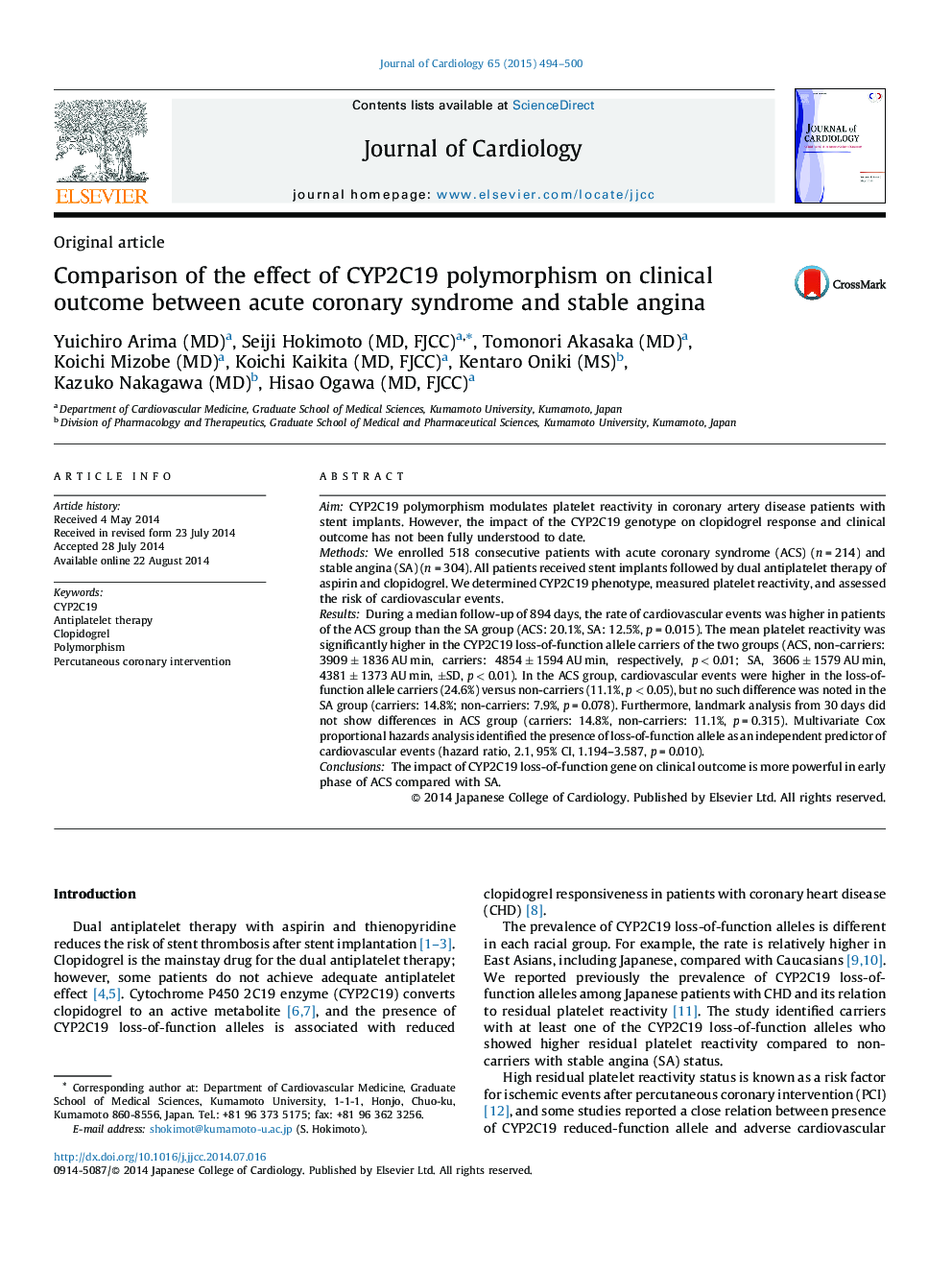| Article ID | Journal | Published Year | Pages | File Type |
|---|---|---|---|---|
| 5984028 | Journal of Cardiology | 2015 | 7 Pages |
AimCYP2C19 polymorphism modulates platelet reactivity in coronary artery disease patients with stent implants. However, the impact of the CYP2C19 genotype on clopidogrel response and clinical outcome has not been fully understood to date.MethodsWe enrolled 518 consecutive patients with acute coronary syndrome (ACS) (n = 214) and stable angina (SA) (n = 304). All patients received stent implants followed by dual antiplatelet therapy of aspirin and clopidogrel. We determined CYP2C19 phenotype, measured platelet reactivity, and assessed the risk of cardiovascular events.ResultsDuring a median follow-up of 894 days, the rate of cardiovascular events was higher in patients of the ACS group than the SA group (ACS: 20.1%, SA: 12.5%, p = 0.015). The mean platelet reactivity was significantly higher in the CYP2C19 loss-of-function allele carriers of the two groups (ACS, non-carriers: 3909 ± 1836 AU min, carriers: 4854 ± 1594 AU min, respectively, p < 0.01; SA, 3606 ± 1579 AU min, 4381 ± 1373 AU min, ±SD, p < 0.01). In the ACS group, cardiovascular events were higher in the loss-of-function allele carriers (24.6%) versus non-carriers (11.1%, p < 0.05), but no such difference was noted in the SA group (carriers: 14.8%; non-carriers: 7.9%, p = 0.078). Furthermore, landmark analysis from 30 days did not show differences in ACS group (carriers: 14.8%, non-carriers: 11.1%, p = 0.315). Multivariate Cox proportional hazards analysis identified the presence of loss-of-function allele as an independent predictor of cardiovascular events (hazard ratio, 2.1, 95% CI, 1.194-3.587, p = 0.010).ConclusionsThe impact of CYP2C19 loss-of-function gene on clinical outcome is more powerful in early phase of ACS compared with SA.
